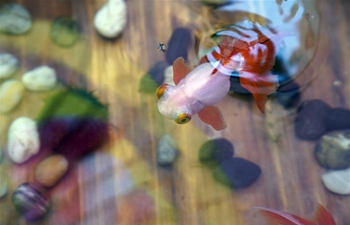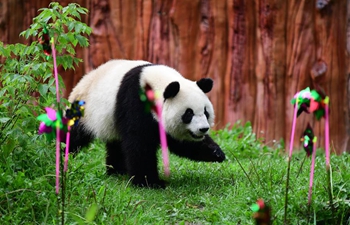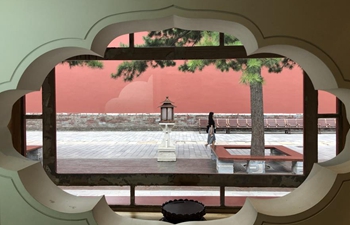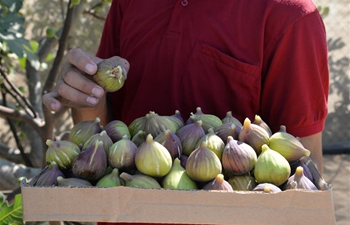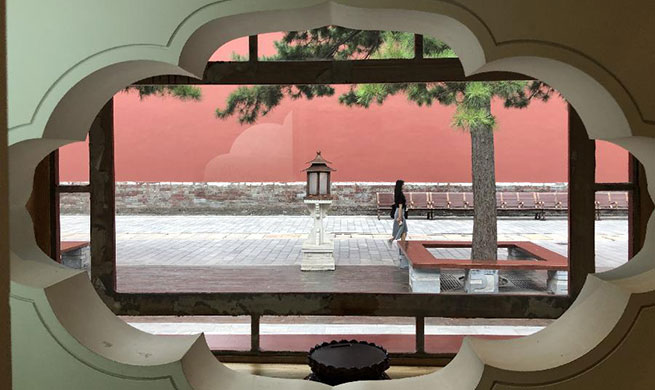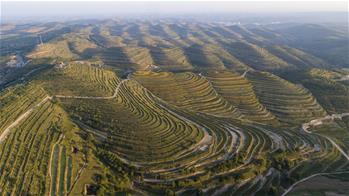NAIROBI, July 30 (Xinhua) -- For many years, Kenyan farmers have been drying their produce that include maize, beans and cassavas using the sun.
The crops would be spread on polythene sheet and dried openly under the sun. This method, however, came with many challenges that included contamination and loss of grains to birds.
The outmoded drying method is currently being replaced by simple home-made solar drying technology that is not only effective in ensuring that produce has low moisture content but it also extends its shelf-life.
The solar dryers are made using ordinary timber and poles and covered with a black polythene liner, making it look like a greenhouse.
Inside the dryer, one then makes shelves preferably from small-holed wire mesh where the produce is placed for drying.
"The black liner helps to attract the heat from the sun enabling the produce to dry faster, in about two to four days but maximum a week if the intensity of the sun is little especially when it rains," Vincent Kinyua, a farmer in Nyeri County, said Tuesday.
On the other hand, a wire-mesh is used as shelf to ensure that heat penetrates the produce well and from the different directions to allow thorough drying.
The dryers have helped farmers across the east African nation to conserve their produce and add value to it.
Away from maize, beans, sorghum, cassava and sweet potatoes, the farmers are using the structures to dry fruits like bananas, pineapples and pumpkins, mushrooms, fish and traditional vegetables.
"It's close to two years since I started using the solar dryer after learning about the technology from a non-state organization. It has enabled me process bananas that I grow into flour," said Kinyua, noting before drying the bananas, they are peeled and chopped into smaller pieces.
Thanks to the solar dryer, the farmer now has his own flour brand that he sells in churches, field days and local markets at 60 Kenyan shillings (0.58 U.S. dollars) a kilo.
Benson Aparo, who grows mushrooms and uses a simple dryer to dry them, noted that the technology has helped him extend the shelf-life of his produce.
"Once I harvest the mushroom, I dry them in my solar dryer which gives me time to sell for a longer period," he said.
Beatrice Macharia of Growth Point, an agro consultancy, noted that solar drying is a cost-effective and greener way of drying produce.
"Unlike electricity or firewood, solar drying comes with very little costs since one depends on the sun," she noted, adding that the fact that the produce is put in the greenhouse-like structures ensures that they are free from contamination.
"This is what the small farmer needs in Kenya to curb post-harvest losses and make more cash," she said, adding that the fact that one makes the dryer using materials readily available on the farm makes the technology suitable.
According to Macharia, a good solar dryer should have an air inlet, drying chamber fitted and a chimney.
"The inlet allows air to flow through the structure but most farmers don't consider it perhaps because theirs are simple structures. Wire mesh is recommended for use because it allows free flow of hot air which hastens the drying of farm produce," she said.
